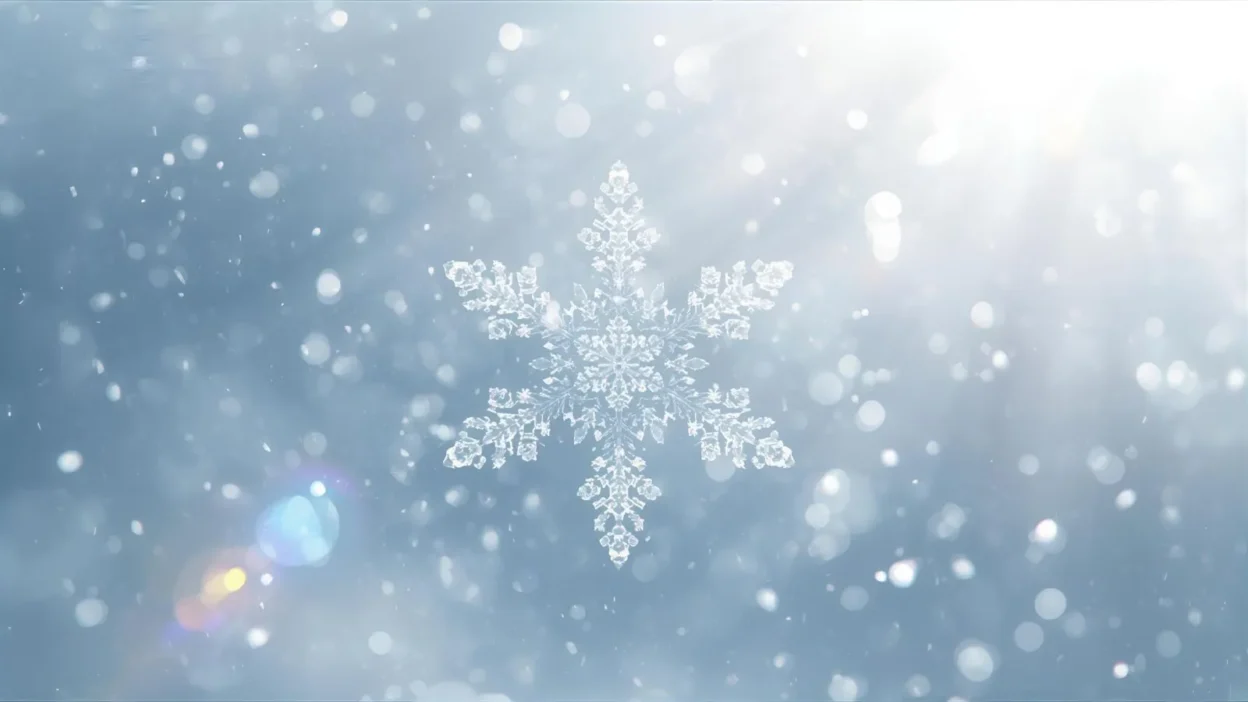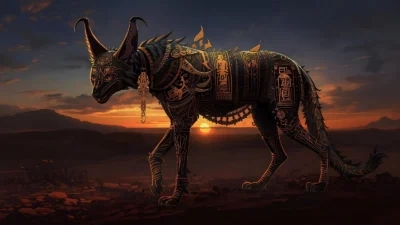It was the first snow of the year.
You opened your window to find the world wrapped in soft white. The trees stood still, cloaked in silence. The streets were empty, the noise of the world muffled. In that moment, it didn’t feel cold—it felt sacred, like time had paused. That’s when you knew: snow isn’t just weather. Snow is a message.
Whether you’ve seen snow falling outside your window or only in dreams, this guide will help you uncover the spiritual meaning of snow, the stories it tells across cultures, and how it may be gently nudging your soul toward something deeper.
Snow Symbolism Meaning
Snow has long symbolized purity, transformation, stillness, and spiritual renewal. Its gentle fall reminds us of quiet moments, a pause from the noise of life, and a chance to reflect inward.
In dreams and spiritual visions, snow often appears when someone is experiencing:
- A cleansing of the past
- A time of emotional hibernation
- A season of inner healing
- The beginning of a new spiritual cycle
The whiteness of snow symbolizes innocence and divine peace. It blankets the earth, hiding imperfections, and offering us a clean slate. To see snow—especially in times of hardship—can be a reminder that even cold, silent moments have a purpose.
Key symbolic meanings of snow:
- Purity – Free from stain or judgment
- Transformation – From water to snow to ice to melt; life’s constant change
- Stillness – A call to pause, reflect, listen
- Peace – Both in life and in the transition toward the afterlife
- Divine timing – Nature’s gentle way of saying “rest is sacred”
Snow Symbolism in Literature
Writers and poets have long used snow to express themes of:
- Death
- Isolation
- Hope
- Forgiveness
In classic literature, snow often appears when a character undergoes deep emotional change. Snow can reflect internal coldness or loneliness, but also a covering of pain—a kind of spiritual bandage.
Examples:
- In James Joyce’s “The Dead”, snow covers Ireland as a symbol of universal mortality and emotional numbness.
- In The Lion, The Witch and The Wardrobe, the land of Narnia is frozen in eternal winter—a metaphor for a spiritual world locked away from warmth and redemption until transformation arrives.
- In Ethan Frome by Edith Wharton, snow becomes a symbol of trapped emotions, the cold weight of duty and regret.
Snow is a powerful literary metaphor because it speaks to both emptiness and hope—the duality of human experience.
Snow Symbolism in the Bible
The Bible uses snow as a symbol of purity, forgiveness, and divine majesty.
- Isaiah 1:18 – “Though your sins are like scarlet, they shall be as white as snow.” This verse speaks of God’s cleansing grace. Snow becomes a metaphor for forgiveness and transformation.
- Psalm 51:7 – “Wash me, and I shall be whiter than snow.” Again, snow here represents a soul made clean by divine love.
- Proverbs 31:21 – A woman of strength is not afraid of snow for her household; snow represents harshness, but also preparation and trust.
Throughout scripture, snow reminds us that even in the coldest seasons, God’s presence remains. It’s a spiritual message: be still, be cleansed, be ready.
What Are Some Examples of Snow Symbolism in Various Cultures?
1. Japanese Culture:
In Japan, snow (yuki) represents transience and beauty. It is admired in haiku poetry as a fleeting, fragile symbol of nature’s elegance. Snow falling on trees is seen as an act of peaceful surrender—letting go.
2. Native American Beliefs:
For some tribes, snow is considered the breath of the Great Spirit, cleansing the land and bringing renewal. Snow also represents the spiritual silence needed for deep listening and guidance.
3. Norse Mythology:
Snow and frost giants (Jotnar) reflect primal chaos and challenge, but also the strength to endure. It symbolizes the trials one must pass before spiritual growth.
4. Tibetan Buddhism:
The snow-covered Himalayas are viewed as sacred. Snow symbolizes enlightenment, clarity of mind, and spiritual elevation.
Across the world, snow is more than weather—it’s a universal symbol of stillness, challenge, and sacred change.
Glory of the Snow Symbolism
“Glory of the Snow” (Chionodoxa) is one of the first flowers to bloom through winter’s end—often before the snow has fully melted.
Spiritually, this flower represents:
- Hope rising through adversity
- Light shining through darkness
- Rebirth after emotional dormancy
It blooms when the world is still frozen, showing us that growth and glory can emerge even in cold, quiet seasons. This is the flower of early resurrection, reminding you: your spirit is stronger than your surroundings.
The Cross of Snow Symbolism
“The Cross of Snow” is a sonnet by Henry Wadsworth Longfellow, written in memory of his late wife.
In the poem, Longfellow describes a mountain where snow never melts—symbolizing his eternal grief. The cross-shaped snow becomes a metaphor for the unmoving weight of sorrow he carries, yet also a kind of spiritual loyalty.
The cross of snow represents:
- Mourning that becomes sacred
- Love that endures beyond death
- Emotional stillness that preserves memory
It’s a deeply emotional symbol of how grief, though cold, can hold spiritual beauty.
Snow Symbolism Dead Poets Society
In Dead Poets Society, snow scenes reflect quiet rebellion and awakening.
The film’s snowy setting often shows moments when the boys:
- Reflect on poetry and freedom
- Face internal conflict
- Experience both emotional clarity and pain
Snow symbolizes:
- Innocence meeting reality
- The cold silence of conformity
- The fragile beauty of freedom
Snow here is both a backdrop and a mirror. It shows how even in places where emotions are suppressed, the spirit longs to break free.
Silent Snow, Secret Snow Symbolism
In Conrad Aiken’s short story Silent Snow, Secret Snow, snow is a symbol of mental withdrawal.
At first, it seems peaceful and magical. But as the story unfolds, snow becomes a metaphor for the boy’s escape from reality—slipping into a world of silence and detachment.
Symbolically, the snow represents:
- Psychological isolation
- Emotional numbing
- A longing for peace that becomes unhealthy
The story warns that too much stillness, too much retreat, can become a kind of spiritual frost—freezing us from life itself.
Real-Life Scenarios of Snow Symbolism
1. The Widow’s First Snowfall
Mariam lost her husband in autumn. When the first snow fell in December, she stood outside, silent. For her, the snow was his voice in silence, telling her, “You’re still here. I’m with you.” It marked the beginning of healing.
2. A Child’s First Snow
Little Jayden saw snow for the first time. He reached out, amazed as the flakes melted on his hand. His mother saw it too—a reminder of innocence, of wonder still alive in the world, no matter how grown-up we become.
3. The Storm That Changed a Life
Raj had just lost his job. That night, a blizzard shut down the city. Alone in his apartment, wrapped in a blanket, he finally sat still long enough to listen—and remembered his dream of becoming a writer. Snow became the invitation to reset.
FAQs
1. What does dreaming of snow mean?
Dreaming of snow usually symbolizes inner peace, emotional clarity, or isolation. If the snow feels calm, it may suggest healing. If it feels cold or stormy, it may reflect emotional suppression.
2. Is snow a good or bad spiritual sign?
Snow is neither good nor bad—it depends on your current season of life. It can be a blessing, urging you to rest, or a mirror, reflecting where you feel frozen.
3. Why does snow often make people feel emotional?
Snow creates silence, and in silence, we hear our hearts. It softens the world, offering a space to feel. It’s not just weather—it’s emotional atmosphere.
4. Can snow symbolize death?
Yes, in many traditions, snow symbolizes death as a gentle passing, not a violent end. It is a peaceful covering, representing spiritual transition or rest.
5. What does melting snow symbolize?
Melting snow means awakening, emotional release, or spiritual thawing. It shows that the season of stillness is ending, and something new is ready to bloom.
Conclusion:
Snow isn’t just frozen water. It’s a message from the soul’s quieter side. It whispers, “Be still. Let go. Begin again.”
Whether you’re going through loss, reflection, or personal transformation, snow is a sacred symbol that speaks to the heart:
You are not alone in the cold. Even in silence, something divine is unfolding.
So next time snow falls—whether outside your window or inside your dreams—pause for a moment. Listen. Let the snow show you what your soul is ready to see.




